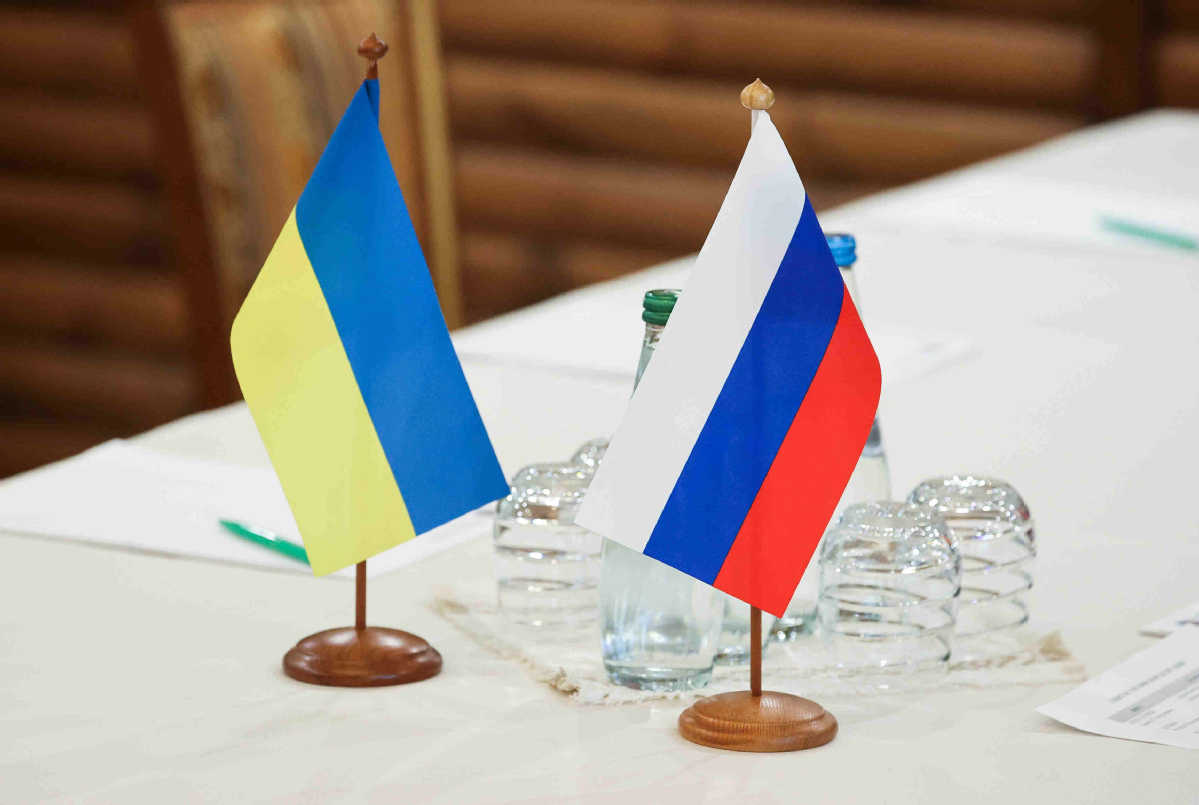Global conflict provides lessons for maintaining economic stability


How to react to the global disturbance
The direct impact of the current Russian-Ukrainian conflict on China is limited, but the indirect one is what we cannot afford to ignore. To this end, China ought to have effective responses-taking both micro and macroeconomic, and short-term to long-term perspectives into consideration-in the following five aspects.
First, China should ramp up diversification of its energy supply and boost efforts to promote energy security while furthering high-quality development of renewable energy. China is the world's largest importer of crude oil, with Russia accounting for 15 to 20 percent of total imports in recent years. In addition, coal imports from Russia also play a role, with the figure accounting for 15.1 percent of the total in 2020. With the European and US sanctions on Russia in this sector, China may see disruptions to a certain extent in its energy supply chain. In addition, imported inflationary pressure brought about by the energy gap is also a factor and should not be overlooked.
In the short term, China should enhance ties with Russia in terms of energy cooperation, especially in the trade of natural gas, petroleum and coal, and step up the construction of gas pipelines to gather speed in safeguarding China's strategic resource reserves. Over the long term, the nation should seek to diversify its energy supply and promote high-quality development of renewable energy. The expansion of new energy investment can not only boost the contribution of investment to GDP, but also help mitigate daunting geopolitical risks, and help the country meet its environmental goals.
Second, China should be alert to the so-called long-arm jurisdiction of the US so as to avoid heavy damage to relevant Chinese enterprises. Since the start of the Russian-Ukrainian conflict, the US has launched a series of sanctions against Russia. The sanctions may also apply to non-US parties carrying out transactions with Russia, hence a cause for concern.
In the short term, China should step up its assessment of its Russia-related business as soon as possible, and learn more about industries at risk in this regard so as to make plans in advance, and have a workable idea about losses that can be avoided or to be borne, as well as benefits, if any, that could be seen, which ultimately will help the nation to minimize the impact of sanctions as much as possible.
In the long run, the more actively China moves to expand global economic and diplomatic cooperation, the stronger the ties between China's economy and that of the world, and the more difficult it will be for the US to restrain China's steps forward. A deeper study of global practices of nations protecting their enterprises when facing the long-arm jurisdiction of the US, can help Chinese players position themselves for extreme occasions.
Third, China should boost its enterprises' ability to cope with fluctuations in global financial markets. With an eye on global disruptions, Chinese enterprises should conduct adequate research into hedging risk in key resource sectors including crude oil, coal, key metal resources, semiconductor materials, wheat and other areas as soon as possible to avoid direct losses due to fluctuations in the global financial market. In the long run, apart from improving the level of Chinese enterprises' global participation, efforts should also be made to improve the globalization and influence of the futures market, and form a price influence commensurate with China's economic scale and raw material purchasing size.
Fourth, the nation should strengthen the resiliency of its financial system to allow it to break any potential "blockade" in the future and avoid a "hard decoupling" from the global community. Since US long-arm jurisdictional moves featuring financial sanctions may affect China, more efforts should be actively made to improve anti-blockade capabilities of the financial system.
Last but not least, China should further strengthen its supply chain security, and strive to ensure the stability of its domestic economic and social development. COVID-19 and geopolitical tensions have been damaging the global supply chain, which was reflected by raw material shortages, rising commodity prices and the US accelerating trade protectionism. Under such circumstances, Russia's energy supply layout will also see adjustments.
For China, domestic economic adjustments combined with rapid changes in the external geopolitical and economic situation may bring dual pressures of higher inflation and unstable supply chains, which will affect market prices and people's livelihoods.
Therefore, in the short term, as is required by the 2022 Government Work Report, the nation should stick to promoting leading enterprises' roles in stabilizing industrial chains, and in the long run, change the situation in which both the upstream energy and technology supply, and downstream high-end consumers are all in overseas markets, making the nation always "being controlled by others" globally. China should speed up core technology research and development, expand domestic demand, actively build a domestic economic cycle and take advantage of its complete range of basic industries to seek a leading role in the global supply chain.
The writer is vice-chairman of the China Macroeconomy Forum, a Beijing-based think tank, and an economist with the Renmin University of China. The article is a translated version of an op-ed piece by the writer for the CMF.
The views don't necessarily reflect those of China Daily.




































